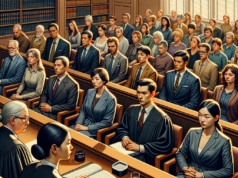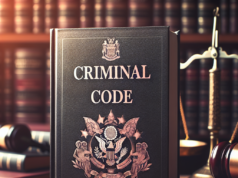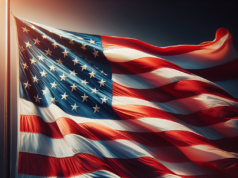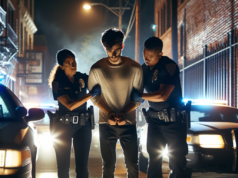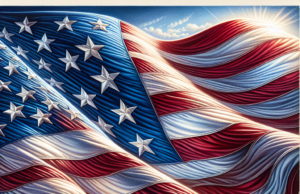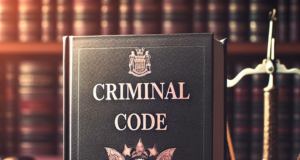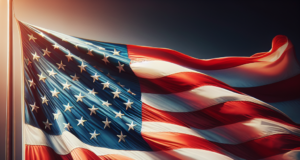
Great progress has been made in the fight against domestic violence with the recent passage of the Violence Against Women Act (VAWA). The reauthorization of this bill has been signed into law by President Obama earlier this month. It has also received bipartisan support in both the Senate and the House of Representatives.
(More on News at LAWS.com, contact Adam for interviews “adama@laws.com”)
Since 1994, the Violence Against Women Act has provided a comprehensive approach to tackling the issues of sexual and domestic violence. It established the National Domestic Violence Hotline and improved the response of the criminal justice system to the problem of domestic violence.
In Oregon, sexual and domestic violence programs answered more than 175,000 calls for help in 2011. That same year, more than 5,000 women, men and children were sheltered. In addition, more than 27,000 victims of domestic violence received community-based support from different programs across the state.
The Oregon Coalition Against Domestic and Sexual Violence (OCADSV) was founded in 1978 to serve survivors of sexual and domestic violence. A non-profit, feminist organization, the OCADSV provides training, technical assistance and public education to crisis centers. It seeks to eliminate sexual and domestic violence through community engagement and survivor advocacy.
The following is an interview with Debbie Fox, Development Director at the OCADSV, on the reauthorization of VAWA.
In your opinion, what does the passage of the Violence Against Women Act (VAWA) mean for the women's rights movement?
I think the recent passage signifies the need for the current women's rights movement to continue educating our legislators and the public on how violence against women affects everyone. With 1 in 3 women affected by gendered violence, there should be no question that VAWA should be passed without controversy.
Do you think the new version of VAWA goes far enough to protect women against sexual and domestic violence?
I believe the new version of VAWA goes further to protect ALL women who experience domestic violence but there is still limited funding to cover preventative measures that will get at the root causes of domestic violence in our society. We need more prevention initiatives to address the core reasons why violence against women exists, and that is the oppression and systemic issues that exists in our society.
The new version of VAWA includes historic provisions for members of the LGBT community and Native American Women. Do you think this is a step in the right direction for LGBT people and Native American Women?
Yes, the Violence Against Women Reauthorization Act of 2013 is a step in the right direction for American Indian women and LGBT people in the United States. According to Jodi Gillette, Senior Policy Advisor for Native American Affairs, and Charles Galbraith, Associate Director in the Office of Intergovernmental Affairs, “The new law…clarifies that tribal courts have full civil jurisdiction to provide Native American women the safety and security of protection orders. And the new law gives additional tools to federal prosecutors to combat severe cases of domestic violence.”[1]
Prior to passage of the law, the National Congress of American Indians reported on the proposed changes, “The constitutionally sound tribal jurisdiction provisions in VAWA authorize tribal governments to prosecute non-Indian defendants involved in intimate relationships with Native women and who assault these victims on tribal land.”[2]
On the other hand, Natalie Landreth, Staff Attorney for the Native American Rights Fund, argues that the law did not go far enough. She states, “Nationwide, many celebrated the new provisions allowing tribal governments to prosecute non-Indian perpetrators of domestic violence and sexual assault. It was a long overdue fix for a jurisdictional loophole. However, VAWA contained a controversial provision that excluded Alaska Native tribes from the tribal jurisdiction provisions.”
For people who are LGBT, the National Gay and Lesbian Task Force Action Fund – with a broad-based coalition – worked for the inclusion of sexual orientation and gender identity in the law. Task Force Executive Director Rea Carey says:
“This is a historic moment for our country. For the first time, this lifesaving law contains explicit protections for LGBT people. To be the target of domestic and sexual assault is terrifying and traumatic, and LGBT people are not immune from this violence. This inclusive Violence Against Women Act is critical to ensuring that the distress experienced by survivors of sexual violence is not compounded by a lack of proper response from service providers or law enforcement. We applaud all those who worked so hard to make sure no one was left behind in this law. We are proud to be a partner in this victory. Thousands of survivors of domestic and sexual violence will get the care they need because so many stood firm for what is right. This is a great day for America.”[3]
[1] Retrieved from the website for The White House at https://www.whitehouse.gov/blog/2013/03/07/president-signs-2013-vawa-empowering-tribes-protect-native-women on March 31, 2013
[2] Retrieved from the website of the National Congress of American Indians at https://www.ncai.org/news/articles/2013/02/28/house-passes-violence-against-women-act on March 31, 2013
[3] Retrieved from the website of the National Gay and Lesbian Task Force at https://thetaskforceblog.org/2013/03/07/president-obama-signs-lgbt-inclusive-violence-against-women-act/ on April 1, 2013
What has your organization been able to achieve in terms of advancing the cause of domestic violence victims in Oregon?
Oregon has achieved many strides over the years, to passing landmark legislation to criminalize rape in marriage at the beginning of the violence against women's movement, to addressing systemic barriers that communities of color experience in Oregon. The Oregon Coalition are statewide leaders in advancing social change as necessary to end violence against women and children, as well as to end oppression of all people. The Coalition promotes the belief that all women have the inherent right to make their own decisions concerning lifestyles, sexuality, sexual orientation, education, employment, reproductive matters and spirituality. We are committed to supporting and involving underserved communities as well as upholding standards for anti-racism work in Oregon.
Do you believe Oregon has come a long way since the initial passage of VAWA in 1994?
Yes, we have made huge strides in addressing this long hidden issues in all communities in Oregon, from rural to the urban centers. We have a comprehensive networks of crisis and advocacy centers that help women and children heal from the abuse they have experienced. We have a statewide safety net across the state that didn't exist with federal support before the passing of VAWA.
If you are in a domestic violence situation, please contact the OCADSV for help. For more information on domestic violence, please visit the Domestic Violence Page.
Interviewed with Debbie Fox of the Oregon Coalition Against Domestic and Sexual Violence, Portland, Oregon





